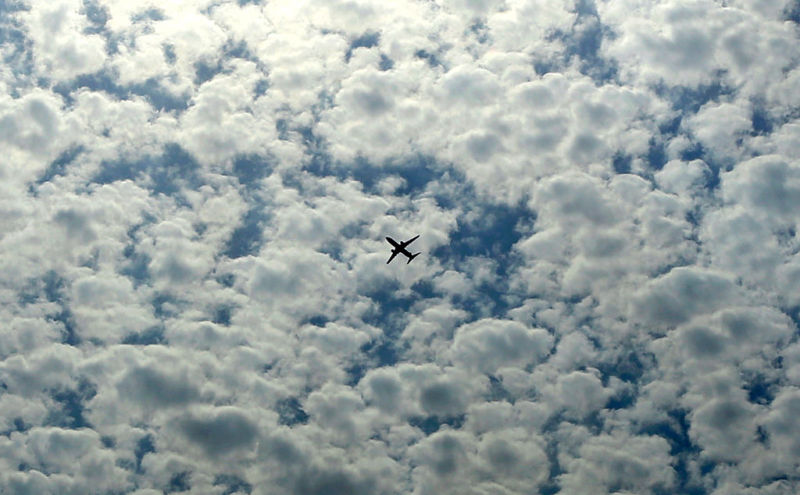
The US Department of Homeland Security has revealed further details today on its decision to ban most electronic devices from the cabins of certain US-bound flights.
Reports emerged yesterday that US government agencies e-mailed some airlines about a new requirement that they ban passengers from bringing devices larger than a cell phone into airplane cabins. Now, DHS has revealed certain details of how the new rules will work. It's still unclear just why the ban is being imposed now or the reasoning behind where it's being imposed.
"Evaluated intelligence indicates that terrorist groups continue to target commercial aviation and are aggressively pursuing innovative methods to undertake their attacks, to include smuggling explosive devices in various consumer items," explains a DHS fact sheet distributed to reporters. The agency will impose "aviation security enhancements" requiring any device larger than a cell phone to be put in checked baggage at 10 selected airports worldwide—that's down from reports yesterday, which indicated up to 13 airports could be affected. The banned devices include laptops, tablets, e-readers, cameras, portable DVD players, and any electronic game bigger than a smartphone.The affected airports are: Queen Alia International Airport in Amman, Jordan; Cairo International Airport; Ataturk International Airport in Istanbul; King Abdul-Aziz International Airport in Jeddah, Saudi Arabia; King Khalid International Airport in Riyadh, Saudi Arabia; Kuwait International Airport; Mohammed V Airport in Casablanca, Morocco; Hamad International Airport in Doha, Qatar; Dubai International Airport; and Abu Dhabi International Airport.
The fact sheet emphasizes that only "a small percentage of flights" to the US will be affected, since there are more than 250 international airports that offer flights to the US. Only US-bound flights will be affected; passengers on flights from the US to the 10 airports in question can carry devices as normal.
The new rules will apply to all passengers boarding in the 10 airports in question, regardless of citizenship.
Terror FAQ
An FAQ sheet handed out by DHS asks many of the pertinent questions but provides vague answers in response. For instance, the answer to the question "Why is DHS/TSA doing this now?" is that DHS "continuously assesses and evaluates the threat environment."
"We have reason to be concerned about attempts by terrorist groups to circumvent aviation security and terrorist groups continue to target aviation interests," added DHS in response to a question about whether there was a specific threat against aviation.
In response to the question "How did you select these airports?" DHS answered that the agency selected the airports "in close cooperation with our intelligence community partners... based on the current threat picture."
To answer the question, "Could more airports be added in the future?" DHS offers this abstraction: "As threats change, so too will TSA's security requirements."
DHS doesn't give a specific answer to one of the most practical questions begged by the rule: what's the definition of smartphone-sized? In a world of big phones, tablets of all sizes, and "phablets," there's no obvious answer.
"The size and shape of smart phones varies by brand," states DHS. "Smartphones are commonly available around the world and their size is well understood by most passengers who fly internationally."
The agency says that terrorist threats "are intensifying, given that aviation attacks provide an opportunity to cause mass casualties and inflict significant economic damage, as well as generate overwhelming media coverage." The FAQ continues:
Terrorist propaganda has highlighted the attacks against aircraft in Egypt with a soda can packed with explosives in October 2015, and in Somalia using an explosives-laden laptop in February 2016.
Terrorists have historically tried to hide explosives in shoes in 2001, use liquid explosives in 2006, and conceal explosives in printers in 2010 and suicide devices in underwear in 2009 and 2012. Within the last year, we have also seen attacks conducted at airports to include in Brussels and Istanbul.
Airlines have 96 hours to comply with the new directives, which will be in effect indefinitely.
Update: The United Kingdom has imposed a similar set of rules banning larger-than-cell-phone electronics on board flights from Egypt, Tunisia, Jordan, Lebanon, Saudi Arabia and Turkey.
reader comments
264